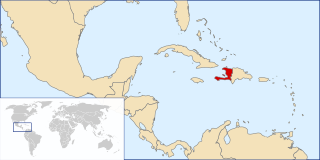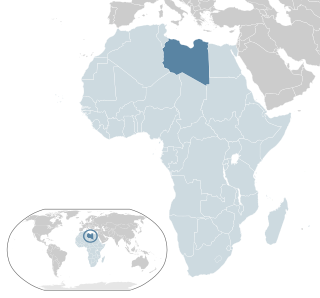
The foreign relations of Sudan are generally in line with the Muslim Arab world, but are also based on Sudan's economic ties with the People's Republic of China and Russia.

United Nations Security Council resolution 940, adopted on 31 July 1994, after recalling resolutions 841 (1993), 861 (1993), 862 (1993), 867 (1993), 873 (1993), 875 (1993), 905 (1994), 917 (1994) and 933 (1994), the Council permitted a United States-led force to restore President Jean-Bertrand Aristide and authorities of the Government of Haiti, and extended the mandate of the United Nations Mission in Haiti (UNMIH) for an additional six months.

United Nations Security Council resolution 1566, adopted unanimously on 8 October 2004, after reaffirming resolutions 1267 (1999), 1373 (2001) and 1540 (2004), the Council condemned terrorism as a serious threat to peace and strengthened anti-terrorism legislation.

In United Nations Security Council resolution 661, adopted on 6 August 1990, reaffirming Resolution 660 (1990) and noting Iraq's refusal to comply with it and Kuwait's right of self-defence, the Council took steps to implement international sanctions on Iraq under Chapter VII of the United Nations Charter. This was the second resolution by the Security Council over the invasion of Kuwait.

United Nations Security Council resolution 986, adopted unanimously on 14 April 1995, after reaffirming all resolutions on Iraq and noting the serious humanitarian situation with the Iraqi civilian population, the council, acting under Chapter VII of the United Nations Charter, established a mechanism whereby Iraqi oil exports would finance humanitarian aid to the country, which later became known as the Oil-for-Food Programme.

UN Security Council Resolution 748, adopted unanimously on 31 March 1992, after reaffirming Resolution 731 (1992), the UN Security Council decided, under Chapter VII of the United Nations Charter, that demanded Government of Libya's immediate compliance with requests from investigations relating to the destruction of Pan Am Flight 103 over Lockerbie and UTA Flight 772 over Chad and Niger, calling on Libya to cease all forms of terrorist action and assistance to terrorist groups. To this end, the council imposed sanctions on Libya until Libya complied.

United Nations Security Council resolution 787, adopted on 16 November 1992, after reaffirming Resolution 713 (1991) and all subsequent resolutions on the topic, the council called upon the parties in Bosnia and Herzegovina to consider the draft outline constitution as a basis for negotiating a political settlement of the conflict in the country, and went on to impose further international sanctions on the Federal Republic of Yugoslavia.

United Nations Security Council Resolution 841, adopted unanimously on 16 June 1993, after recognising the need for an urgent settlement to the situation in Haiti and the efforts of the Secretary-General of the United Nations Boutros Boutros-Ghali and the Secretary General of the Organization of American States João Clemente Baena Soares, the Council placed various international sanctions on Haiti.

United Nations Security Council resolution 864, adopted unanimously on 15 September 1993, after reaffirming resolutions 696 (1991), 747 (1992), 785 (1992), 793 (1992), 804 (1993), 811 (1993), 823 (1993), 834 (1993) and 851 (1993), the Council noted the continuing situation in Angola and went on to condemn and place international sanctions on UNITA.

UN Security Council Resolution 883, adopted on 11 November 1993, after reaffirming resolutions 731 (1992) and 748 (1992), the council noted that, twenty months later, Libya had not complied with previous Security Council resolutions and as a consequence imposed further international sanctions on the country.

United Nations Security Council resolution 910, adopted unanimously on 14 April 1994, after considering a letter by the UN Secretary-General Boutros Boutros-Ghali advising of his intention to send a reconnaissance team to the Aouzou Strip disputed between Chad and Libya, the Council decided to exempt the reconnaissance mission from a provision in Resolution 748 (1992) that imposed international sanctions on Libya.

United Nations Security Council resolution 915 was adopted unanimously on 4 May 1994. While reaffirming Resolution 910 (1994), the Council, acting on a recommendation by the UN Secretary-General Boutros Boutros-Ghali, established the United Nations Aouzou Strip Observer Group (UNASOG) to supervise the withdrawal of Libyan forces from the Aouzou Strip following an International Court of Justice opinion rendered in the Libya–Chad Territorial Dispute case that the strip formed part of the territory of Chad.

United Nations Security Council resolution 1044, adopted unanimously on 31 January 1996, after noting the assassination attempt on President of Egypt Hosni Mubarak at an Organisation of African Unity (OAU) summit in the Ethiopian capital Addis Ababa on 26 June 1995, demanded that the Government of Sudan comply with OAU requests to extradite suspects sheltered in the country to Ethiopia.

United Nations Security Council resolution 1051, adopted unanimously on 27 March 1996, after reaffirming resolutions 687 (1991), 707 (1991) and 715 (1991) on the monitoring of Iraq's weapons programme, the council approved a mechanism for monitoring Iraq's imports and exports of "dual use" items.

United Nations Security Council resolution 1070, adopted on 16 August 1996, after reaffirming resolutions 1044 (1996) and 1054 (1996) concerning the assassination attempt on Egyptian President Hosni Mubarak at an Organisation of African Unity (OAU) summit in the Ethiopian capital Addis Ababa on 26 June 1995 and subsequent sanctions, the Council placed aviation sanctions on the Government of Sudan after its failure to comply with OAU requests to extradite suspects sheltered in the country to Ethiopia.

United Nations Security Council resolution 1298, adopted unanimously on 17 May 2000, after reaffirming resolutions 1177 (1998), 1226 (1999), 1227 (1999) and 1297 (2000) on the situation between Eritrea and Ethiopia, the Council condemned continuing hostilities and imposed an arms embargo on both countries.

United Nations Security Council resolution 1320, adopted unanimously on 15 September 2000, after reaffirming resolutions 1298 (1999), 1308 (2000) and 1312 (2000) on the situation between Eritrea and Ethiopia, and 1308 (2000), the Council deployed a military component as part of the United Nations Mission in Ethiopia and Eritrea (UNMEE) and extended its mandate until 15 March 2001.

United Nations Security Council resolution 1333, adopted on 19 December 2000, after recalling all resolutions on the situation in Afghanistan, including Resolution 1267 (1999), called for a ban of military assistance to the Taliban, closure of its camps and an end to the provision of sanctuary of the movement.

United Nations Security Council resolution 1372, adopted on 28 September 2001, after recalling resolutions 1044 (1996), 1054 (1996) and 1070 (1996) concerning the assassination attempt on Egyptian President Hosni Mubarak at an Organisation of African Unity (OAU) summit in the Ethiopian capital Addis Ababa on 26 June 1995 and subsequent measures, the Council noted compliance by Sudan and terminated sanctions against the country.

United Nations Security Council resolution 1506, adopted on 12 September 2003, after recalling resolutions 731 (1992), 748 (1992), 883 (1993) and 1192 (1998) concerning the destruction of Pan Am Flight 103 over Lockerbie, Scotland in 1988 and UTA Flight 772 over Niger in 1989, the council lifted sanctions against Libya imposed after the country failed to co-operate with investigations into the destruction of the aircraft.



















